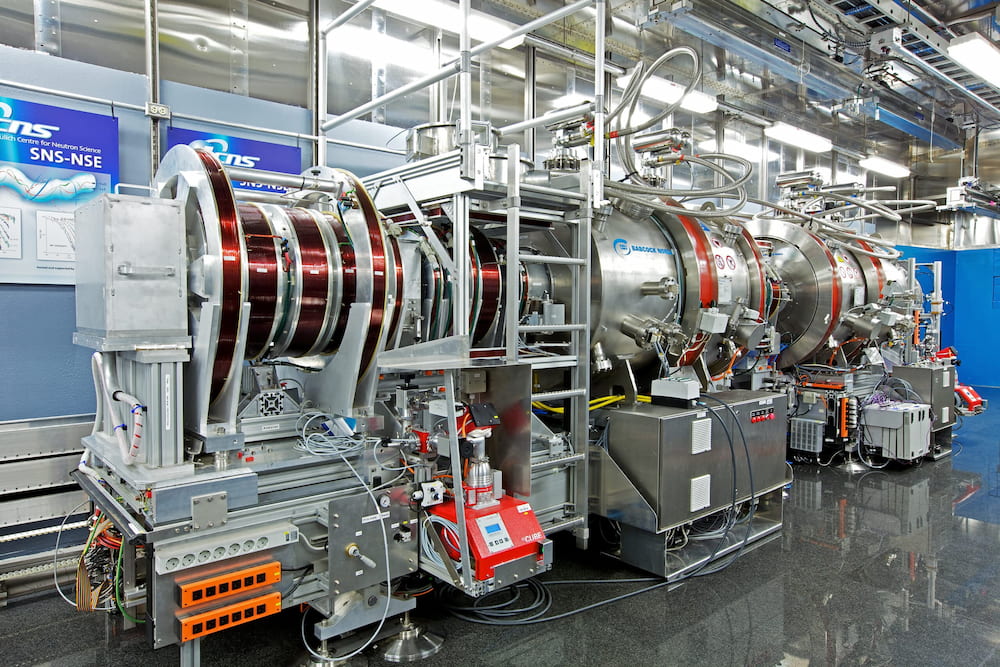Quantum materials
Fascination and function: exploring and harnessing the power of quantum phenomena to create technologies for a post-silicon age
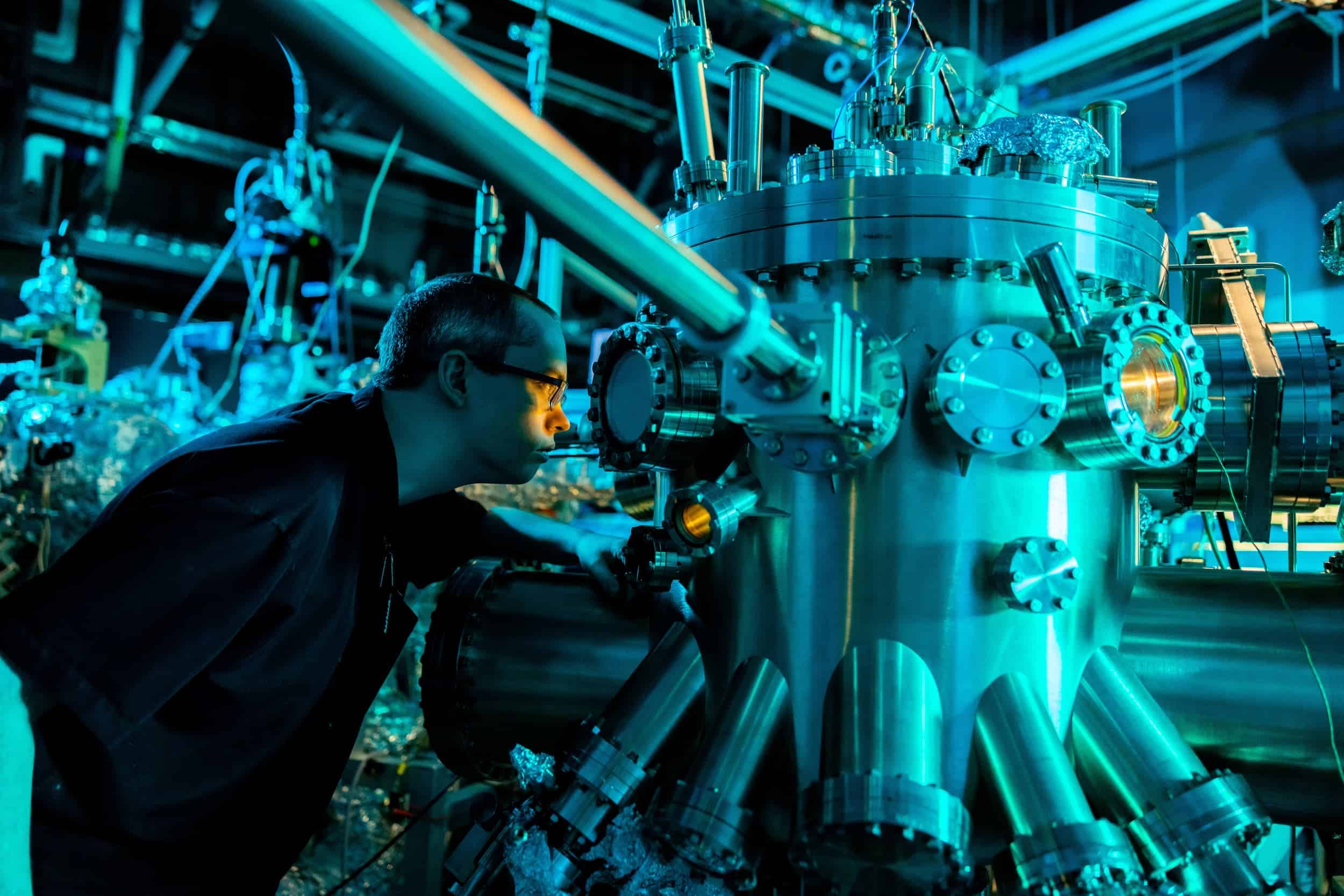
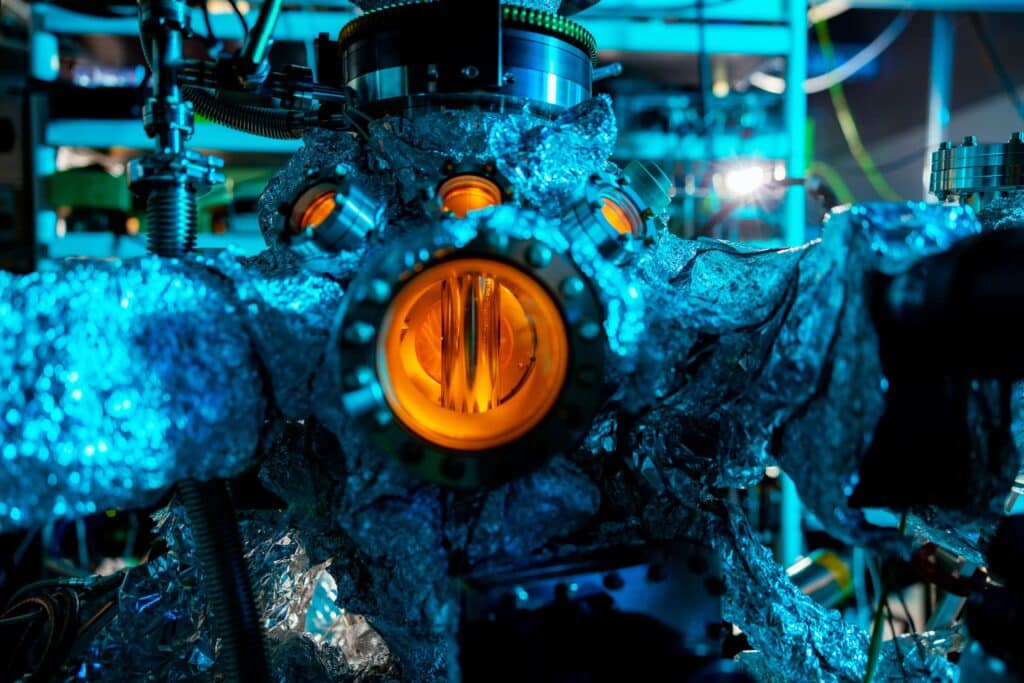
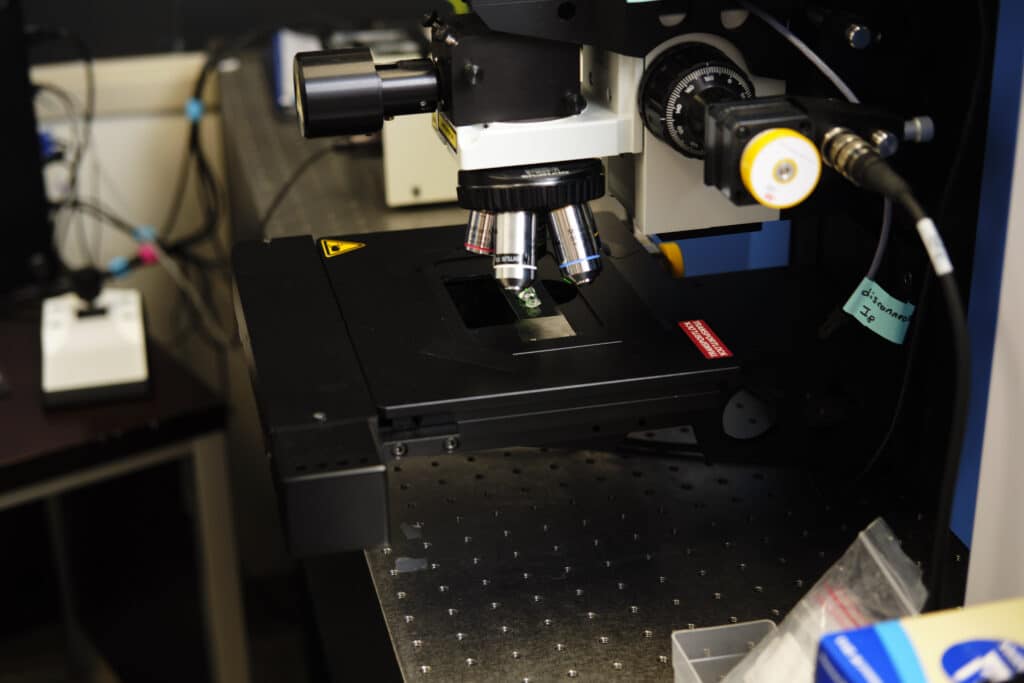
Researchers from physics, mathematics, computer science, electrical engineering, and materials science and engineering are working together to unveil the organizing principles of macroscopic quantum phenomena and harness these properties in devices and systems in applications ranging from energy harvesting and low power electronics to novel sensing and quantum computing.
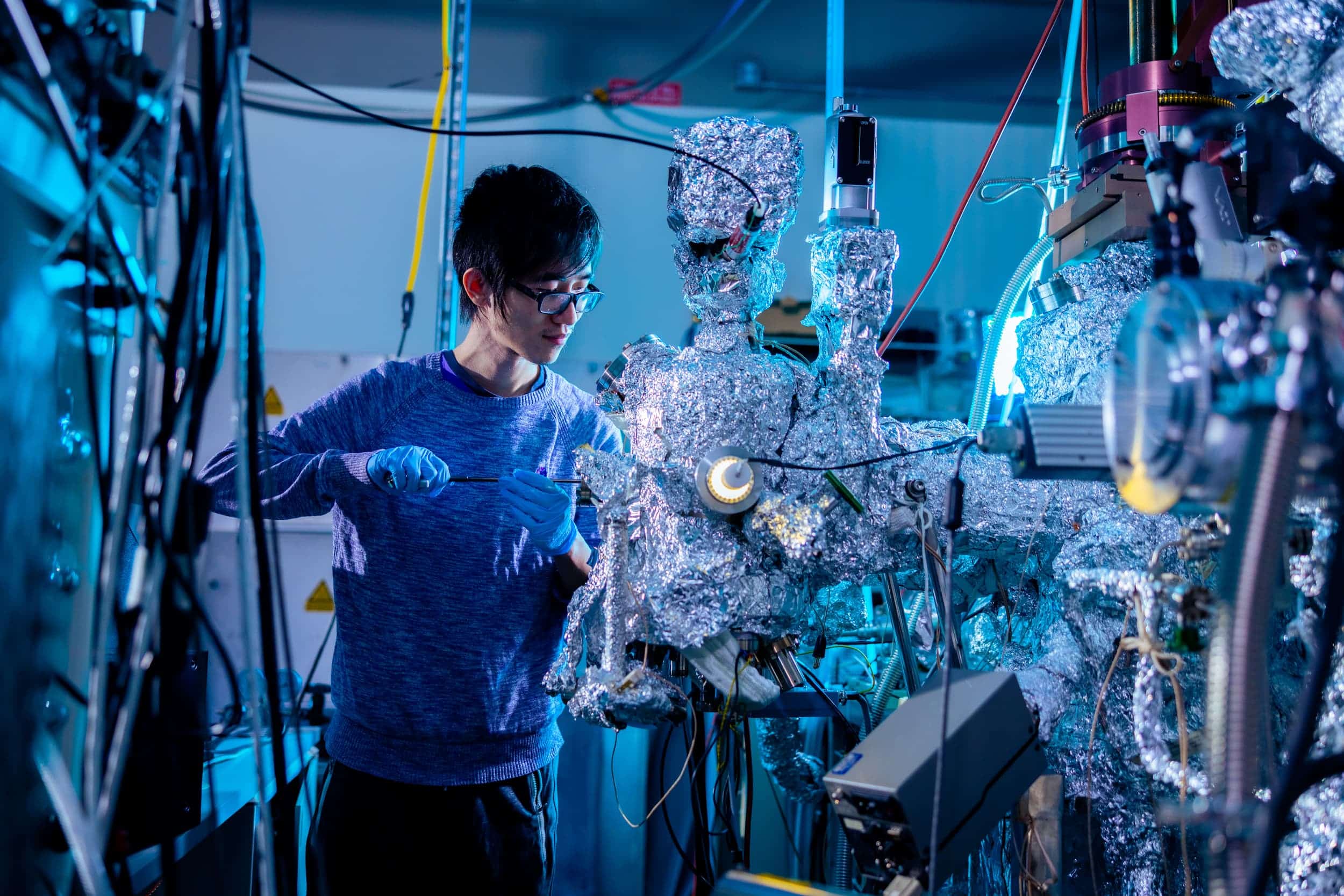
UT’s Approach
Faculty, staff, and students advance the research frontiers of quantum materials, devices, and systems through collaborative efforts in AI-informed materials co-design, synthesis, and device fabrication as well as characterization using a broad range of experimental probes. In addition to leveraging IAMM’s world-class research facilities, our quantum materials community also access world-class facilities at Oak Ridge National Laboratory, including the Spallation Neutron Source and Frontier, the world’s first exascale supercomputer.
UT is actively recruiting a diverse cadre of undergraduates, graduate students, and postdoctoral fellows to work in this exciting area.
Highlights
Observing Quantum Mechanical Behavior
UT Professor Adrian Del Maestro collaborated to build a helium atom pipe capable of compressing helium down to single-atom thickness, allowing scientists to observe quantum mechanical behavior.
Stealing Electrons and Reversing Time
UT physicists led the scientific team that found silicon can host a novel form of superconductivity that could bring rapidly emerging quantum technologies closer to industrial scale production.
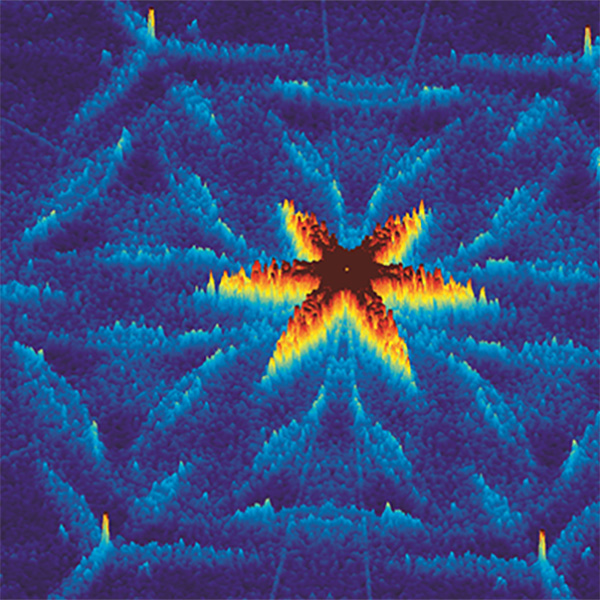
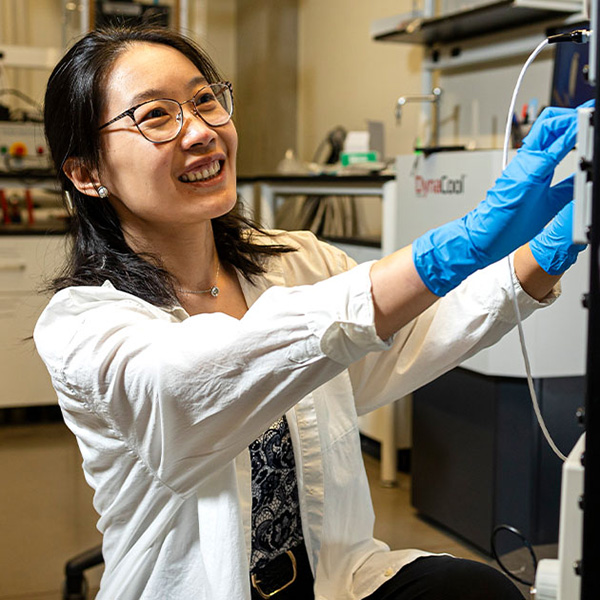
Wang Investigates Dynamic Electron Spins in Correlated Magnets
Assistant Professor Yishu Wang was awarded a $719,000 research grant from the US Department of Energy to study the dynamic and microscopic behaviors of correlated magnets, which have strong potential in energy-efficient devices capable of high-speed computation. Wang will develop a new capability of neutron scattering that will fully capture the spin dynamics in correlated magnets over time.
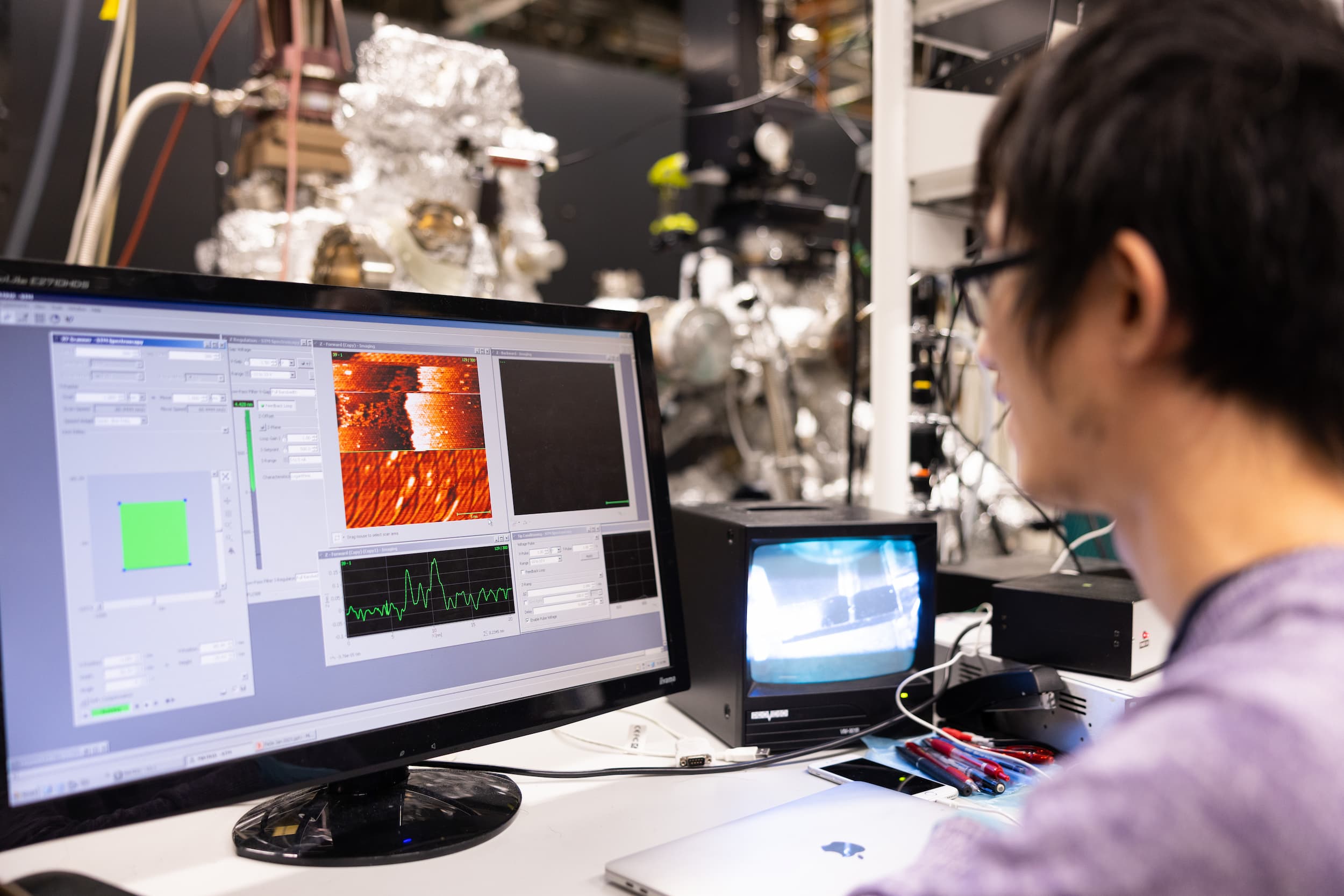
Talent
-
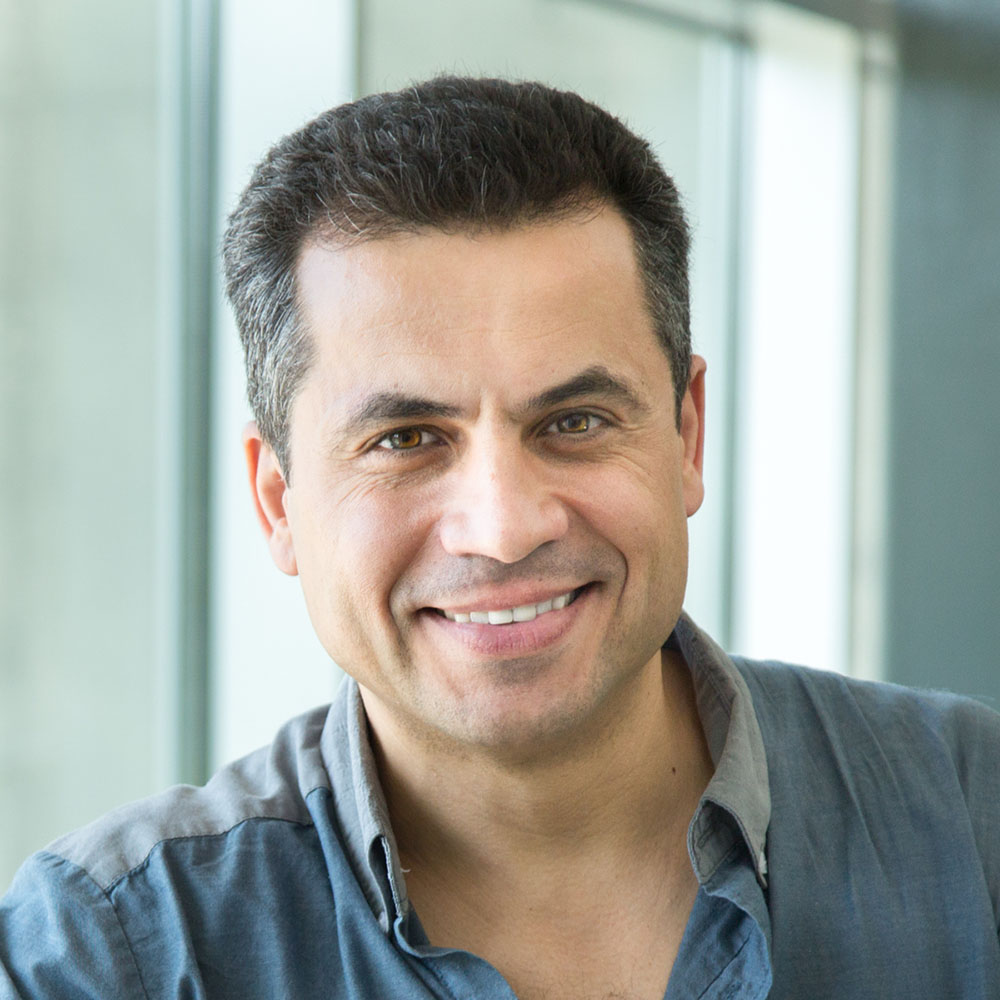
Lincoln Chair Professor, Physics & Astronomy
Quantum materials synthesis, molecular quantum systems, 2d materials, quantum magnetism, strongly correlated electron systems, quantum theory and simulations, AI, high performance computing, topology, algorithmic development, correlated systems, quantum control and measurement
-
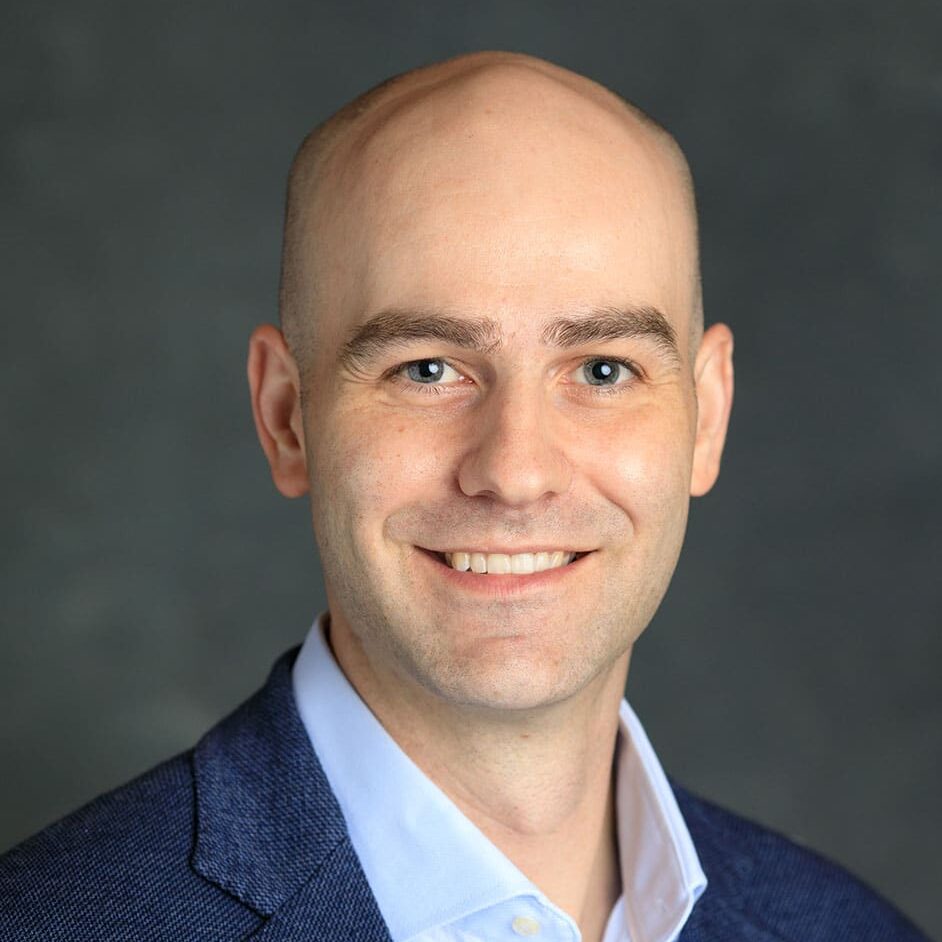
Department Head & Professor, Physics & Astronomy
Thermodynamics and statistical physics, condensed matter physics, quantum physics, quantum entanglement, quantum nanofluidics, quantum phase transitions
-
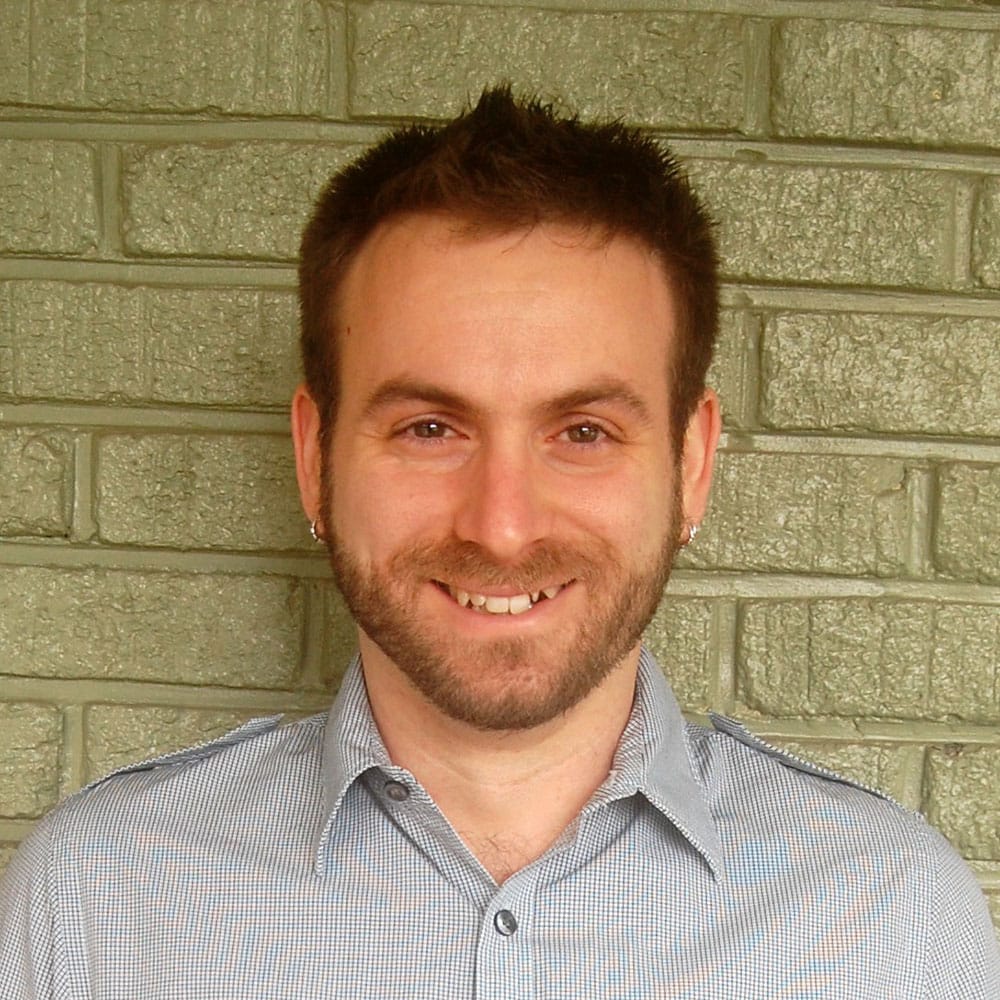
Professor, Physics & Astronomy
Condensed matter physics, multi-orbital systems, electron-boson interactions, high-temperature superconductivity
-

Assistant Professor, Physics & Astronomy
Quantum control and measurement, spectroscopy, out-of-equilibrium quantum measurement and sensing, transport, and devices
-
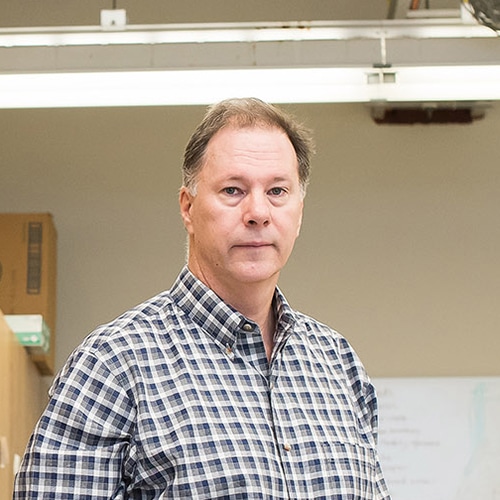
Professor, Materials Science & Engineering
Growth, discovery, and materials physics of new electronic and magnetic materials such as superconductors, thermoelectrics, multiferroics, and itinerant magnets; oxide electronics
-

Professor, Physics & Astronomy
Experimental condensed matter physics, electron correlations, spectroscopic techniques with ultraviolet and soft x-ray regimes, angle-resolved photoemission spectroscopy, core-level photoemission spectroscopy, x-ray absorption spectroscopy, soft x-ray emission spectroscopy, materials for energy storage, spintronics
-

Professor, Mathematics
Statistics & data analysis, probability & stochastic processes, mathematical biology, computational & applied mathematics, topology
-
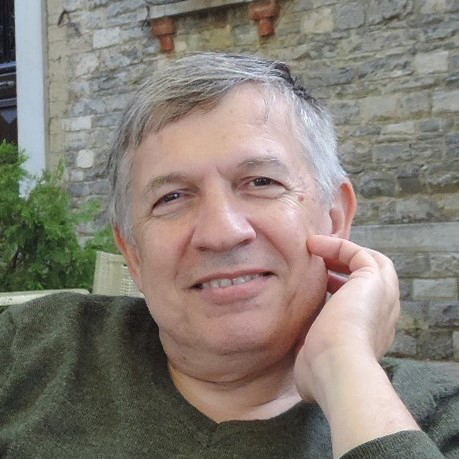
Professor, Physics & Astronomy
Quantum computing, quantum information processing, implementation of quantum algorithms
-
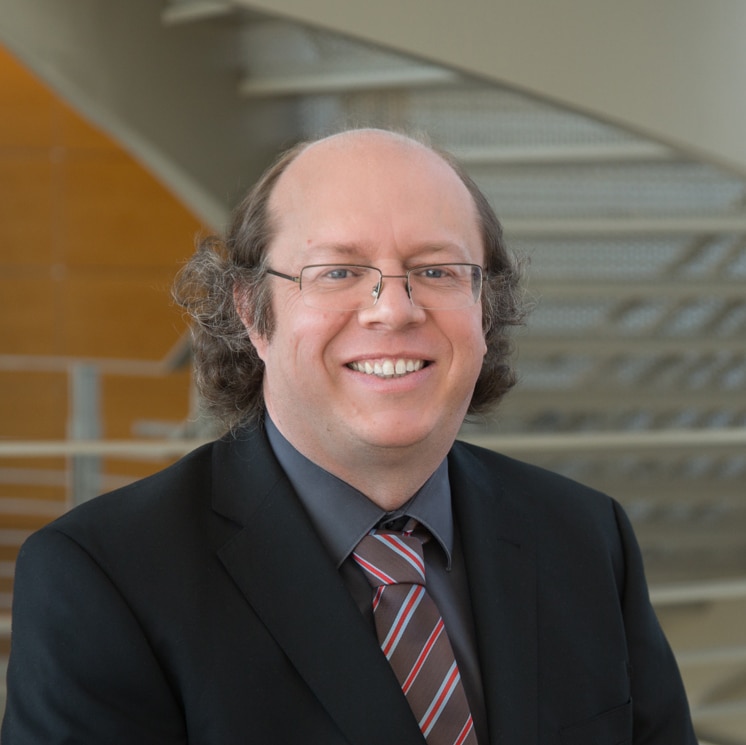
Professor, Physics & Astronomy, Materials Science & Engineering
Quantum theory and simulations, AI, high-performance computing, topology, algorithmic development, correlated systems
-
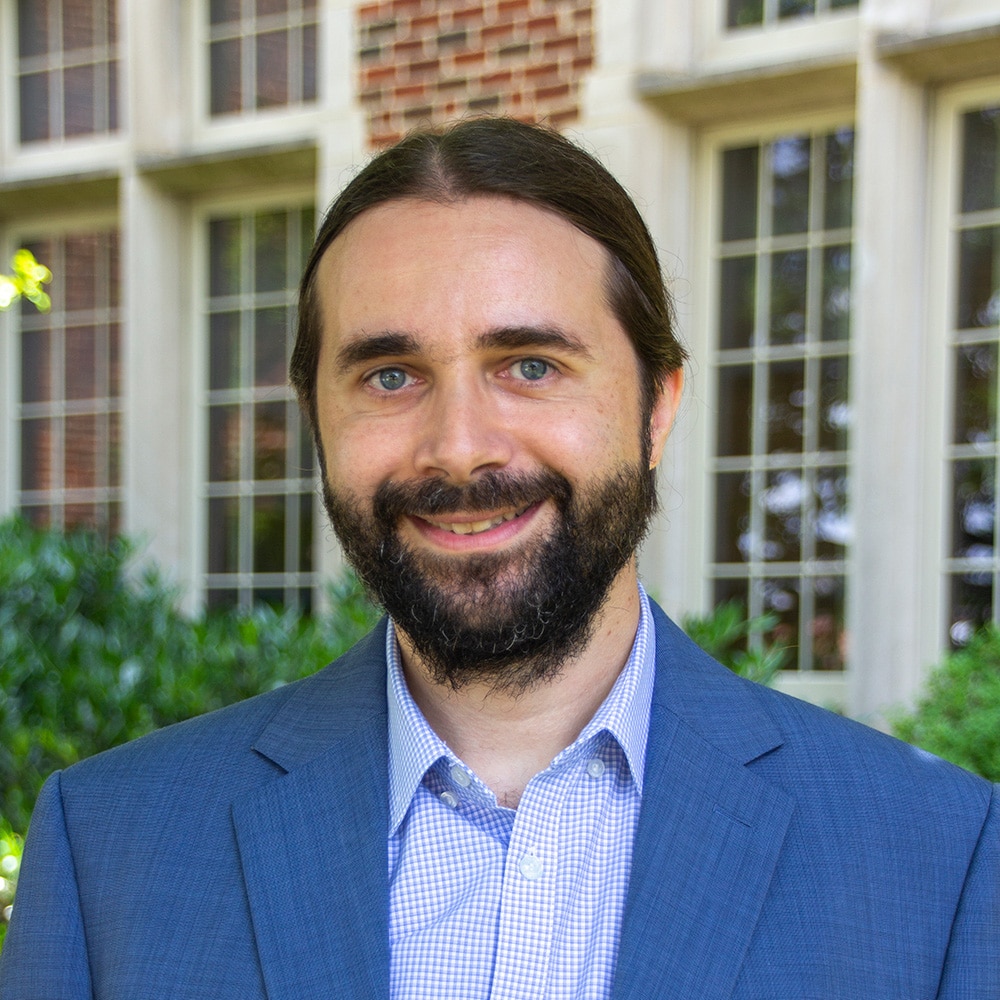
Associate Professor, Chemistry
Quantum theory and simulations, AI, high performance computing, topology, algorithmic development, correlated systems
-

Assistant Professor, Materials Science & Engineering
Quantum spin systems, electronic phase transitions, quantum criticality
-

Chancellor’s Professor, Physics & Astronomy
Quantum materials synthesis, molecular quantum systems, 2D materials, quantum magnetism, strongly correlated electron systems
-
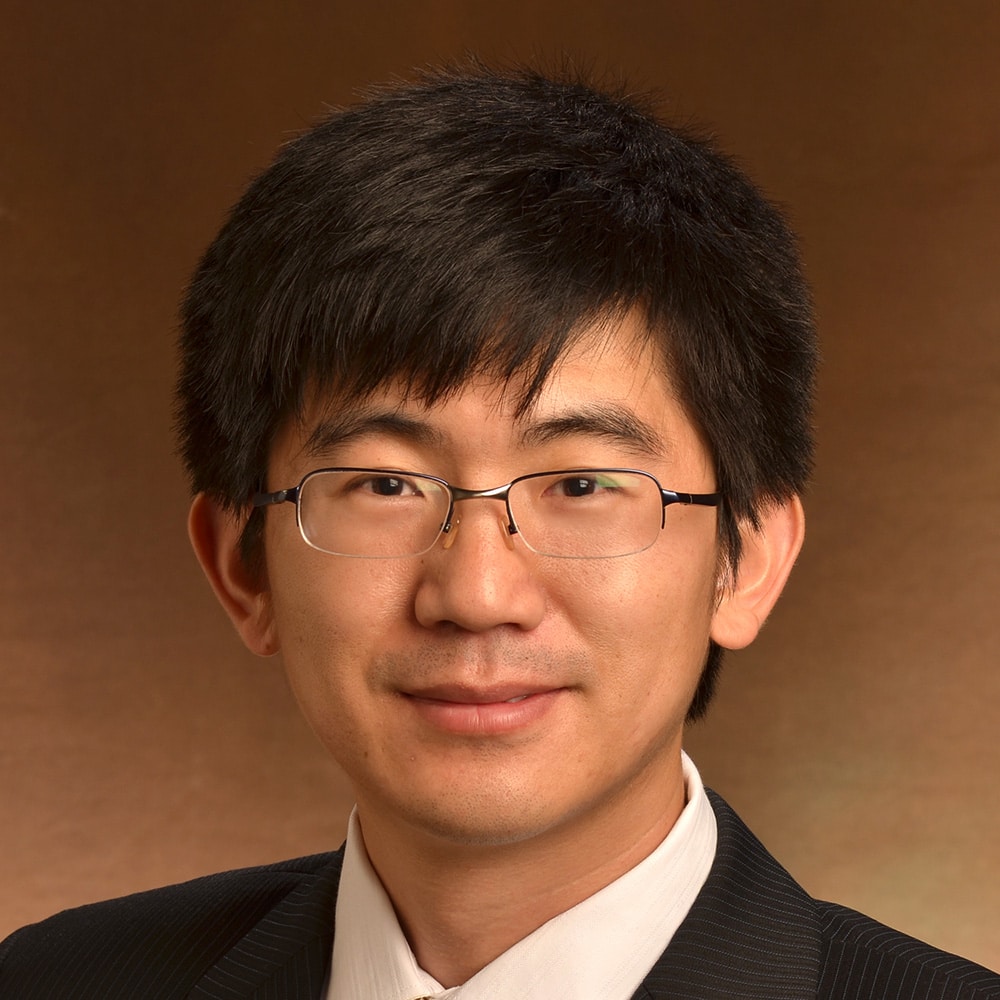
Associate Professor, Materials Science & Engineering
Computational materials science, density functional theory and atomistic simulations, defect interaction and radiation effects, deformation mechanism and electronic/magnetic effects on mechanical properties of structural alloys, electromagnetic coupling and flexoelectric effects, materials for neuromorphic computing, mesoscale computational methods
-
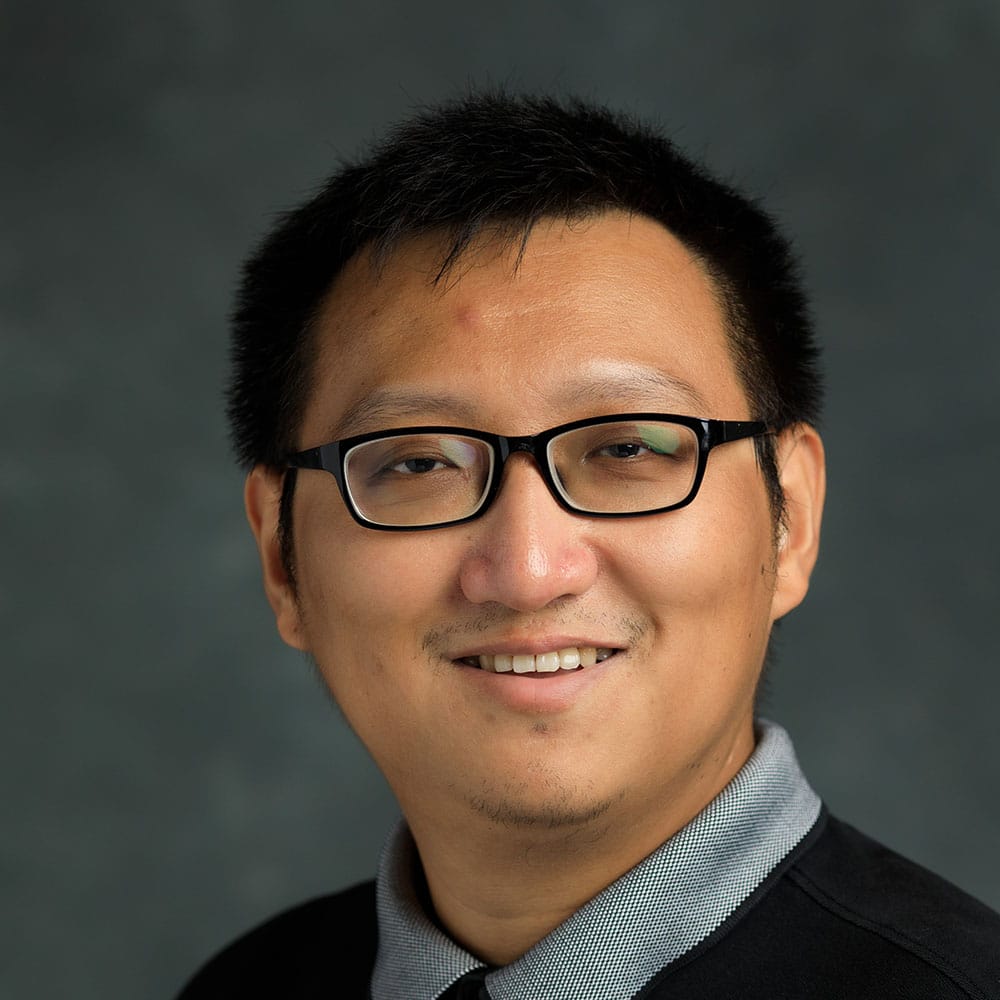
Assistant Professor, Physics, Materials Science & Engineering
Quantum theory and simulations, AI, high-performance computing, topology, algorithmic development, correlated systems
-
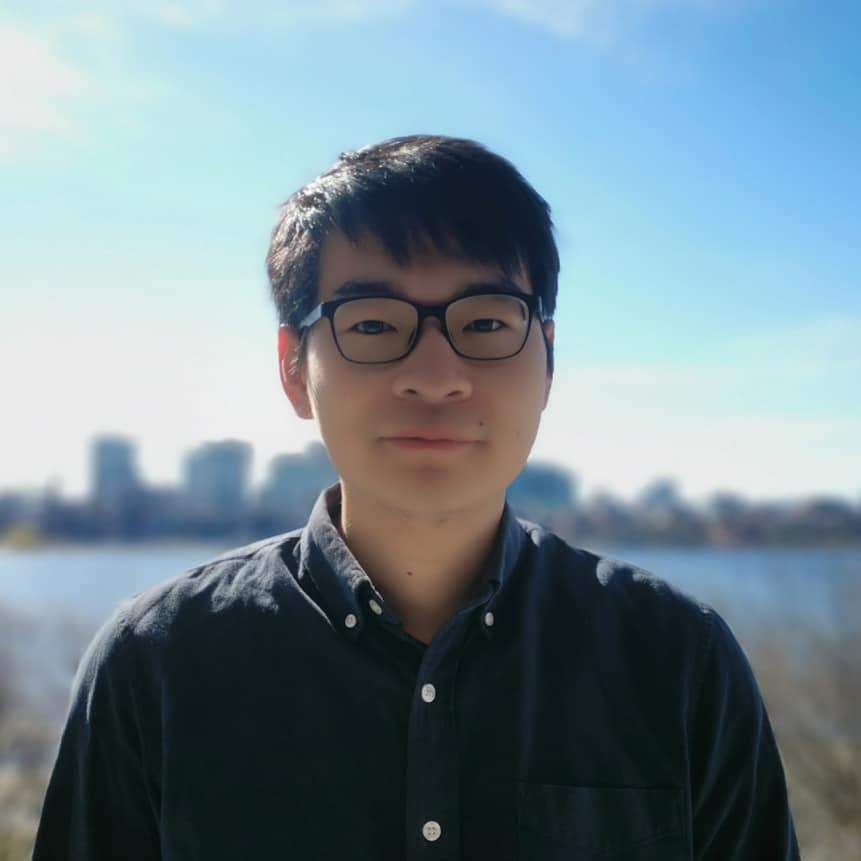
Assistant Professor, Physics & Astronomy, Electrical Engineering & Computer Sciences
topological states, quantum transport, and light-matter interaction in topological/strongly correlated materials and their potential applications for future quantum technology
